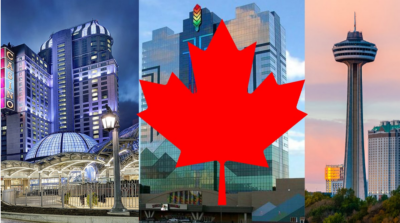 By Maria Garcia
By Maria Garcia
June 27th, 2022
BURLINGTON, ON
Since April 4th, 2022, Ontario residents, including those in Burlington, gained legal access to online gambling sites. Now that the market is up and running, we thought we’d check in on what has changed.
Has the ability to place over under bets and wager on the outcome of the roulette wheel changed our attitude toward gambling? Are the legal safeguards in place working to improve the lives of people in Burlington and Ontario in general? These are the questions we aim to answer.
What’s Changed?
Plans to end the Ontario Lottery and Gaming Corporation’s market monopoly were announced in April, 2019. The legislation was introduced and passed in 2021, and later that year, regulatory standards were drafted.
The main changes were new advertising standards and rules for casinos, as well as the introduction of a new licensing system. For sports betting, it brought forth more choices for sportsbooks and a wider choice of bet types.
 iGaming Ontario
iGaming Ontario
iGaming Ontario (IGO) is a subsidiary of the Alcohol and Gaming Commission of Ontario (AGCO) and is in charge of regulations and licences. The government body has already granted licences to several operators, which have met the new regulations.
Online gambling isn’t new to Burlington. However, sites will now require a licence to operate. As they’ve become a part of the system, they’ll need to pay taxes that’ll benefit locals.
Sports Betting
Bettors aged 19 or over now have access to several online sportsbooks. Before the change, sports fans were able to make predictions via the only sportsbook available. Additionally, single-event betting is now possible, whereas before, the focus was on parlays.
Around 20 sportsbooks have been granted licences. It means bettors can choose where to spend their money based on various factors.
Casinos
 Offshore casino gambling was already pretty well established in the province. The change in licensing and regulations is giving home-grown establishments the opportunity to penetrate the local market.
Offshore casino gambling was already pretty well established in the province. The change in licensing and regulations is giving home-grown establishments the opportunity to penetrate the local market.
The 20% tax rate is a bone of contention with the brick-and-mortar casinos, which are subject to a much higher percentage at 55%. Many argue that the changes will cause a loss of revenue for existing operators.
On the other hand, proponents of iGaming regulations suggest that offshore gaming was already competing with land-based casinos. They maintain that legal online casinos need a lower tax rate to compete with overseas sites.














